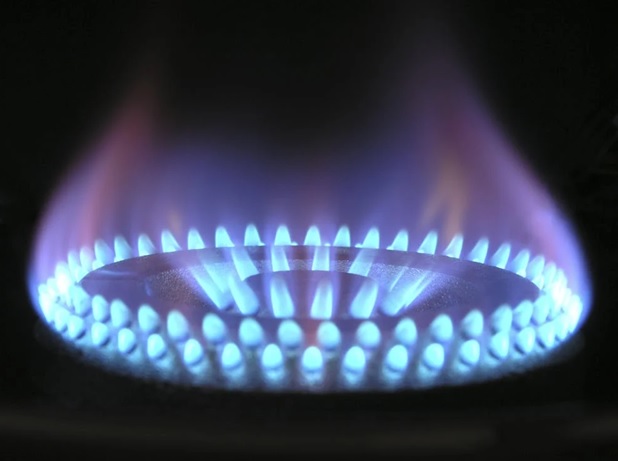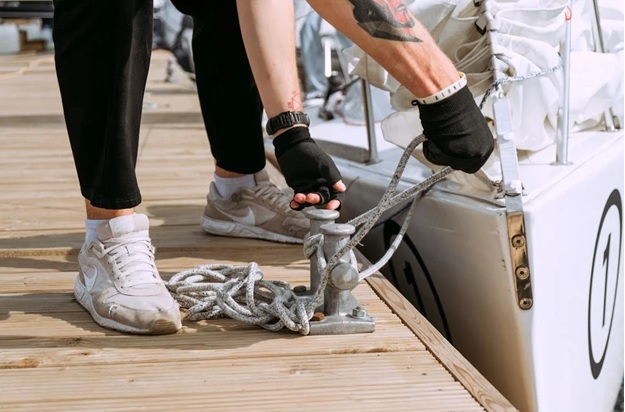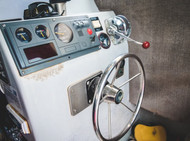Reducing the Risk of Fire on Board Vessels
27th Aug 2024
According to a BoatUS, AC and DC electrical fires are the number one cause of fires on board boats, followed by overheated cooling systems, and then by chemicals and fuel.
Either way, the risk of fire on board boats is nothing new. For centuries, sailors have had to contend with the risk of fire, but the advent of electricity has only complicated things.
Nonetheless, fire risk poses a serious threat to life, limb, and of course, property. Here are some pointers to observe to be safer on the water.
Always Inspect Electrical Systems Before Leaving Port
Considering the fact that a great number of fires on board boats are electrical in origin, it behooves you to inspect your infrastructure before leaving port.
Check all exposed connections for corrosion as well as to be sure they are appropriately tightened. Loose connections can cause sparking/arcing, and corrosion can cause overheating.
Pay close attention to where any wires run through walls/dividers. If they are not adequately protected, they can chafe and may overheat, which also produces a higher risk of fire.
Replace any and all wires or connections anywhere you observe any corrosion or damage, immediately.
Use Appropriate Marine Grade Wire
Another important consideration is that you use only appropriately rated marine grade wire, as required by the circumstances.
For instance, if the application calls for 8 AWG marine battery cable, use that. Using a wire that is not an appropriate gauge for the application can result in overheating and fires.
Also, use 8 AWG marine battery cable, as regular 8 AWG battery cable is not the same. Marine grade wire is made of many strands of thin, individually tinned conductors.
The process of individually tinning the copper conductors protects them from corrosion and helps prevent corrosion from traveling up underneath the insulation.
All electrical work performed on your vessel should be done in accordance with American Boat and Yacht Council’s electrical code, and in observance of the National Fire Protection Association’s considerations.
Keep Workspaces Clean
Keeping your workspaces clean and dry, as well as free of ignition sources, will help with overall fire prevention and mitigation.
Store Flammables Appropriately
Your vessel should have a designated “flammables cabinet” for the storage of flammable materials, such as chemicals and solvents.
Make sure that all flammable materials are stored in these cabinets and that all crew members are trained on keeping the doors closed to restrict airflow and prevent spills. Alternatively, you can consider self-closing doors.
Also, another good prevention measure is to use metal trash receptacles, as metal is not flammable. Make it a practice to empty these containers every day.
Flammable storage goes for fuel, too. Make sure that fuel and oil are stored only in appropriate and accurately marked and labeled containers.
If possible (or practical, given the size of the vessel) invest in an appropriate ventilation system. Fuels like gasoline produce fumes that are heavier than air and which will collect in low areas, such as the bilge, producing a higher risk of explosions.
A proper ventilation system will help prevent these fumes from accumulating.
Observe Appropriate Refueling Protocols
First and foremost, inspect your fuel system regularly to ensure that all connections/fitting are secure and leak free.
When refueling, observe a strict no-smoking policy and keep the hose nozzle in connection with the fill pipe to prevent static sparks.
Before restarting the engine, ensure all compartments have been appropriately ventilated to rid them of fuel vapors that can cause fires.
Be Safe When Cooking

Cooking on board a boat also produces a unique set of challenges. Make sure to secure everything, and only cook in fair weather. The only thing worse than a fire on board is a fire on board in a storm.
If using barbecue grills, never leave them unattended while lit. If using propane, either on a grill or in the galley, ensure that gas supply values are turned off when the equipment is not in use.
Anywhere you store butane or propane gas on board, keep the tanks/bottles stored in lockers that vent overboard to prevent flammable gasses from accumulating.
Always Keep Appropriate Fire Extinguishers on Board and Accessible
The most recommended type of fire extinguisher for use on board a boat is a Class ABC fire extinguisher, which can extinguish fires burning both solid and liquid fuels, as well as electrical fires - which as stated are common on boats.
All fire extinguishers stored on board your boat should be kept in an easily accessible location, all crew members should be trained on access, and they should be visibly marked.
Moreover, fire extinguishers should be inspected at least twice per year, if not more frequently, to ensure that they are filled and operational. Inspect the hoses for cracks as well, and replace any extinguishers that show signs of wear or damage.
Regardless, any extinguisher on board your boat should be approved by the United States Coast Guard for marine use.
Make Sure Crewmembers Are Prepared

This includes guests on your vessel. Make sure that all crewmembers are aware of the location of fire extinguishers as well as how to operate them.
Here for High Quality 8 AWG Marine Battery Cable?
This short list is only a primer and is not complete. Always be aware of all local regulations and requirements and observe them with the strictest fidelity to ensure you are compliant not only with the law but with best practices for fire prevention on boats.
For our part, we supply high quality marine battery wire and cable that is made with highly protective insulation, a high conductor strand count to ensure flexibility, as well as with individually tinned copper stranding that are highly corrosion resistant.
If you’re looking for high-quality marine grade boat wire, we have it. If you have any questions before buying feel free to get in touch with us at Sales@EWCSWire.com or by phone at 800-262-1598 and we will help in any way we can.

